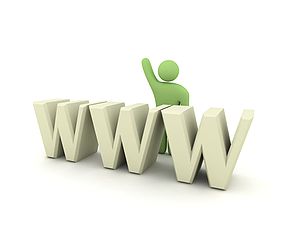The internet is no longer in its infancy. It may be approaching, or is already in its teen age years, depending on who you ask and what happens in the next few years. Back in the 90’s, when I first starting using it, getting around was slow for the most part. Aside from websites that were almost all text with the occasional image, the load time for a graphic heavy page would sometimes be over a minute. It was new and exciting so I didn’t complain…much. I had nothing to compare it to, so I was sort of happy just to have it. As the century turned and technologies advanced and were standardized, websites were able to deliver more complex content. Part of this was because the architecture of the internet was improving (cable internet vs. dial-up) and the website developers had standards to work with so their work would look relatively the same in the available browsers at the time (anyone remember Netscape?). Images were no longer a huge consideration (just a large one) and video could be seen by users with a high speed connection and a good computer.
Fast forward
Today, people have become used to having high speed internet and websites like Hulu, Funny or Die and YouTube thrive because of the advances in technology and infrastructure. Some might even say those of us who are used to high speed access, or have come to expect it, have become spoiled. I would ask those people if they use a horse to get around… I thought so. Advances in technology, good ones anyway, become part of our culture over time and often become fixtures in everyday life. Some to the point of being necessary and regulated by the government (electricity, phone, cars and to a lesser extent, television). Why should the internet be any different? In Vermont, cable television providers, as well as gas and electrical companies and others, must obtain a “Certificate of Public Good” in order to do business in the state. If cable television is considered to be vital enough to the public for the dissemination of information, surely the internet should be as well.
Why net neutrality is critical
Net neutrality, as defined on Wikipedia “is a principle proposed for user access networks participating in the Internet that advocates no restrictions by Internet Service Providers or governments on content, sites, or platforms, on the kinds of equipment that may be attached, and on the modes of communication allowed.” The big players in the internet service provider (ISP) arena are, for the most part, against net neutrality. Their stated reasons vary a little, but the biggest and most obvious motivation is so they can charge more for less restricted access. This can work two ways. First, subscribers can be charged for different levels of restriction, like they currently are for different connection speeds. Secondly, content providers (the people or companies who put up websites) can be charged to ease the restrictions on their websites. An apt analogy is having a Gold/Executive membership with an airline. They go to the front of the line and don’t have to wait with the rest of us, but of course membership isn’t free or cheap.
The internet has proven to be a very valuable tool for democracy in that literally anyone can put up a website with relatively little money and anyone in the world can access that website just as easily as any large corporation’s website. Score one for the little guy…for now. The FCC is currently grappling with this issue, and has been since 2005. The dangers of corporate dominance affect journalism, commerce, politics and more. In the area of politics, take the 2008 U.S. Supreme Court decision in Citizens Untied v. Federal Election Commission. Their decision effectively opens the floodgates for corporate sponsorship for (or against) candidates at every level of government. The internet, with net neutrality intact, would be a much more level playing field than television. We all know how saturated channels get with political ads around election time. With corporations now having no limit on their ability to broadcast or advertise for (or against) candidates within 60 days of an election, we may find ourselves drowning in political ads every election season. Once again, the biggest bank account is mostly likely the winner. If net neutrality is killed, it will be one small step for ads, and one giant leap towards a corporate state.
Resources
The People Formerly Known as the Audience



